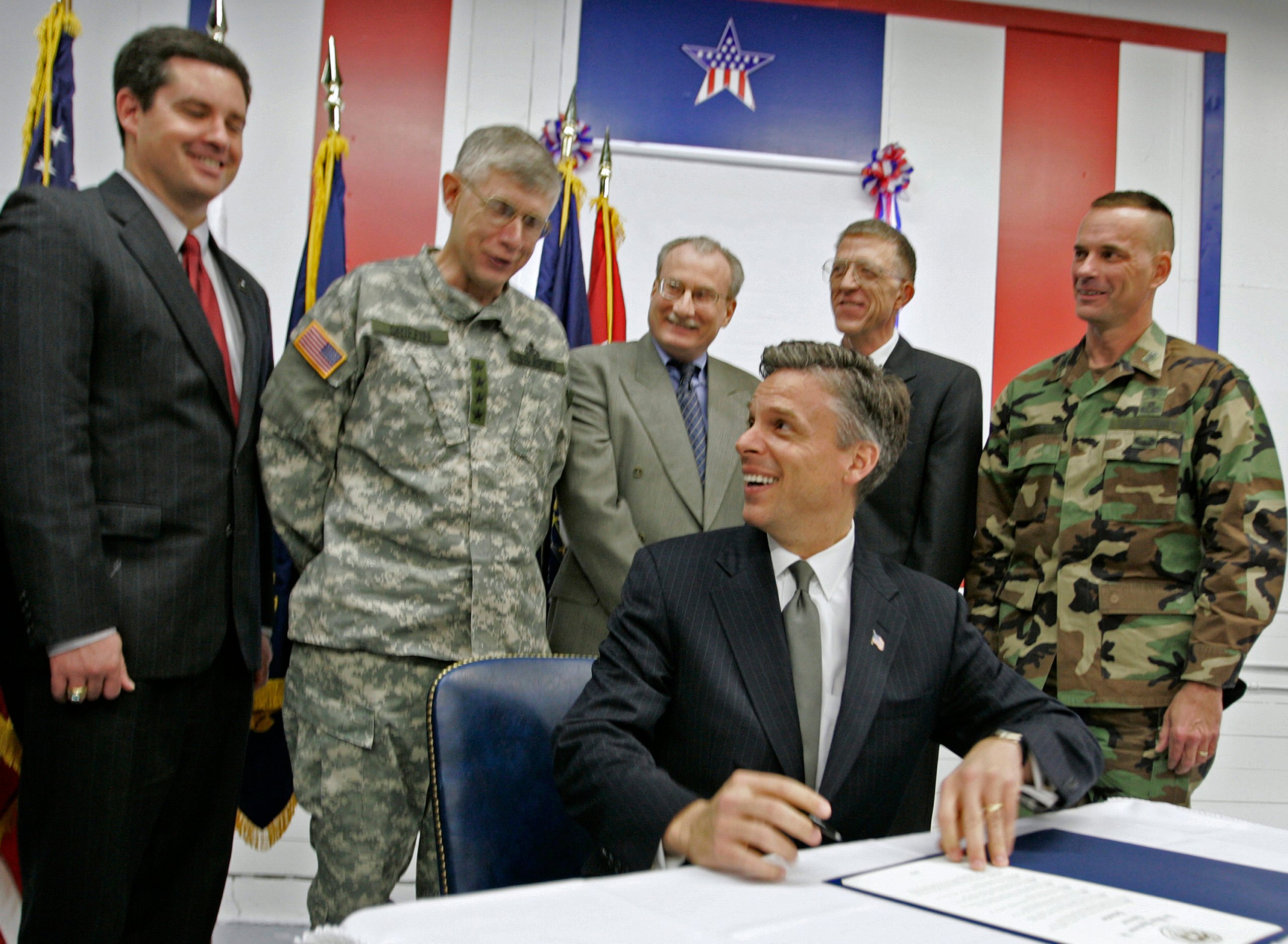
Pentagon Defends Why The US Was The Last Country To Destroy Declared Chemical Weapons
Micaela Burrow on July 10, 2023
- A congressionally-driven incineration ban prolonged the U.S. chemical weapons stockpile from being destroyed, costing tens of billions of dollars.
- The U.S. destroyed the last of its chemical weapons stockpiles on Friday, making it the last signatory to an international agreement denouncing the weapons of mass destruction to meet its pledge.
- However, officials believe Russia, China and Syria hold undeclared stockpiles.
Congressional dictates to avoid burning chemical weapons amid safety concerns helped drag out the Pentagon’s decades-long, $42 billion process of destroying its chemical weapons stockpiles, Department of Defense (DOD) officials said Monday.
On Friday, the U.S. destroyed the last of its declared chemical weapons, barely meeting the Sept. 30 goal and becoming the last of the countries that signed onto an international treaty renouncing the weapons of mass destruction to officially rid itself of stockpiles, officials told reporters on Monday. The last 10% of chemical weapons proved the most challenging — and expensive — to permanently dismantle, requiring 11 years and consuming $13.5 billion in funding after Congress stepped in requiring a “safe, secure and environmentally responsible” destruction, Army Assistant Secretary Doug Bush said.
“Destroying the remainder posed a greater challenge because it involved the more complicated approach of neutralizing these munitions’ chemicals,” Bush told reporters.
“Our safety requirements are second to none worldwide,” he added.
Facilities used to neutralize the weapons will now enter a closure phase expected to take three years and cost $2 billion to $3 billion, officials said.
In all, the U.S. Army dismantled more than 30,000 metric tons of declared chemical agents, including mustard gas, sarin and other deadly nerve agents, Kingston Reif, the deputy assistant secretary of defense for threat reduction and arms control, said.
But, the process extended far beyond what the Pentagon estimated to take just a few years, and the cost soon skyrocketed past the $1.4 billion initially budgeted out, The New York Times reported. Local communities near the planned destruction sites feared toxic byproducts spewing across their lands, and in response Congress legislated that the Army find an alternative to incineration.
“The congressional mandate was to evaluate new technologies,” Michael Abaie, DOD’s executive officer for chemical weapons alternative programs, said, so the Army could not use incineration for the last 10% of weapons to be destroyed.
The last of 780,000 canisters of mustard gas was destroyed on June 22 at the Army’s Pueblo Chemical Depot in Colorado, Abeia said. On Friday, the last rocket developed to deliver sarin was dismantled at the Blue Grass site in Kentucky.
In all cases, the process was fully robotic once the munitions entered the destruction facility, Abeia explained. Machines drained each mortar or canister of agent and neutralized the toxic substance through a series of chemical and biological processes. The final products — water and salt cakes, in the case of mustard gas, or a substance called hydrolysate in the case of the liquid nerve agents — were disposed of or shipped off-site to a licensed facility for incineration.
In 2018, when the U.S. committed to the Sept. 30, 2023 deadline, officials were not confident the U.S. would achieve that goal, Bush said.
Britain and India also declared their stockpiles eliminated in 2007 and 2009, respectively, the NYT reported.
Other nations, including Russia and Syria, only destroyed their stockpiles with U.S. financial and technical assistance, he added. However, officials suspect China and Russia maintain hidden stockpiles, while forces loyal to Syrian President Bashar al-Assad are confirmed or suspected to have deployed chemical weapons several times between 2012 and 2018, according to the Arms Control Association.

DESERET CHEMICAL DEPOT, UT – MARCH 9: Utah Gov. John Huntsman (C) signs a proclamation commemorating the destruction of the 1 millionth chemical munition at the Desert Chemical Depot, part of an effort to reduce what was once half the nation’s chemical weapon stockpile, March 9, 2005 near Tooele, Utah. (Photo by Reagan Frey/Getty Images)
As of June 30, 99% of the world’s declared chemical weapons had been rendered permanently unusable, according to the Organization for Prevention of Chemical Weapons, which is responsible for monitoring implementation of the 1997 Chemical Weapons Convention.
Non-signatory states, such as the Democratic People’s Republic of Korea, also likely have chemical weapons stores, Assistant Secretary of State Mallory Stewart said Monday, referencing chemical weapons-enabled assassinations. It’s also unclear whether other nations that deny chemical weapons programs are in fact working on the weapons clandestinely.
The U.S. is not known to have used chemical weapons since 1918, according to the NYT.
All content created by the Daily Caller News Foundation, an independent and nonpartisan newswire service, is available without charge to any legitimate news publisher that can provide a large audience. All republished articles must include our logo, our reporter’s byline and their DCNF affiliation. For any questions about our guidelines or partnering with us, please contact [email protected].